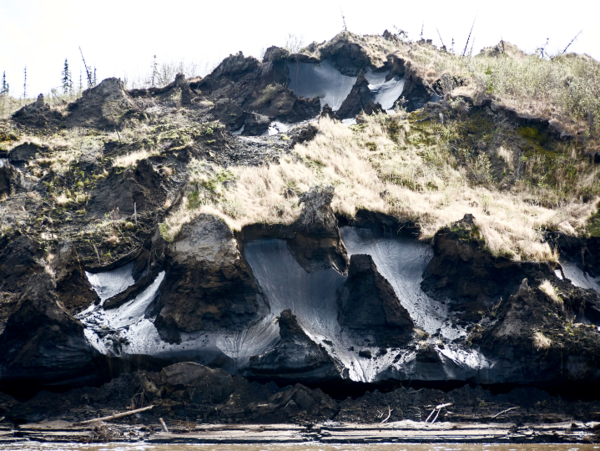
The newest IPCC report – a look behind the scenes
A very personal account by Jochem Marotzke The just-published Assessment Report 6 (AR6) of the Intergovernmental Panel on Climate Change IPCC has…
![[Translate to English:] [Translate to English:]](/fileadmin/_processed_/2/0/csm_210810_Bild_fuer_P._Korn_problem_6x4_3c6d622b58.jpg)
Variational data assimilation – one problem less
In a new study in the Journal of Nonlinear Science Dr Peter Korn, scientist and group leader in the department “The Ocean in the Earth system” at the…
![[Translate to English:] [Translate to English:]](/fileadmin/_processed_/a/2/csm_IPCC_2021_Eyecatcher_5ff9ab1006.jpg)
New IPCC Assessment Report: Climate change widespread, rapid, and intensifying
How has climate changed up until the present? How will it change in the future? Questions like these are answered in the recently published first…
![[Translate to English:] [Translate to English:]](/fileadmin/_processed_/e/4/csm_210721_Abb_PM_Brovkin_6b835aebdd.jpg)
Past abrupt changes provide evidence of cascading tipping points and ‘early warning signals’ in the Earth system
Can climate change result in a collapse in parts of the Earth system, what impacts would these events have on society, and can they be predicted? In…
![[Translate to English:] [Translate to English:]](/fileadmin/_processed_/a/c/csm_Wolkenphoto_George_964d626802.jpg)
The observed impact of mesoscale vertical motion on tropical clouds
A recent study by Geet George, Bjorn Stevens (both from the Max Planck Institute for Meteorology) and Marcus Klingebiel (now at Leipzig University)…
![[Translate to English:] [Translate to English:]](/fileadmin/_processed_/b/3/csm_210713_Wolkenphoto_Karibik_AK_74872da07c.jpg)
Waves and coherent flows in the tropical atmosphere: new opportunities, old challenges
In a review article appearing in the Quarterly Journal of the Royal Meteorological Society, Dr. Claudia Stephan (Max Planck Institute for…
![[Translate to English:] [Translate to English:]](/fileadmin/_processed_/5/f/csm_scicom3_ba11bd2757.png)
Exploiting large ensembles for a better yet simpler climate model evaluation
In a new study, Dr. Laura Suarez, Dr. Sebastian Milinski and Dr. Nicola Maher evaluate which models best capture the real-world climate with its…
![[Translate to English:] [Translate to English:]](/fileadmin/_processed_/6/a/csm_Dian_fig1a._6x4_3336238816.png)
Abrupt CO2 quadrupling: Resolving ocean eddies leads to smaller increase in global mean surface temperature
In a recent study in Geophysical Research Letters, Dr. Dian Putrasahan and colleagues from the department “The Ocean in the Earth System” at the Max…
![[Translate to English:] [Translate to English:]](/fileadmin/_processed_/6/0/csm_Eddies_AMOC_STORM_6x4_ebaddfec9a.png)
Only eddy-resolving models capture the complete range of AMOC responses to surface winds
In a new paper, Veit Lüschow, Jin-Song von Storch and Jochem Marotzke from the Max Planck Institute for Meteorology show that the Atlantic meridional…
![[Translate to English:] [Translate to English:]](/fileadmin/_processed_/3/2/csm_210609_Fig_1_Azoulay_et_al_077a0c7aa4.png)
The Arctic polar vortex response to volcanic forcing of different strengths
Large volcanic eruptions can inject sulfur containing gases into the stratosphere where they build sulfate aerosols. These particles, on the one…
![[Translate to English:] [Translate to English:]](/fileadmin/_processed_/f/c/csm_210511_deVrese_eso0603a_65e077b7a9.jpg)
Could the deglaciation of Snowball Earth have started in the mid-latitudes?
A new study, led by scientists of the Max Planck Institute for Meteorology (MPI-M), investigates the question which conditions could have triggered…

Response of high-latitude ecosystems to temperature overshoot scenarios
High-latitude soils contain almost twice as much carbon as the atmosphere, and the fate of this frozen organic matter under ongoing climate change is…

